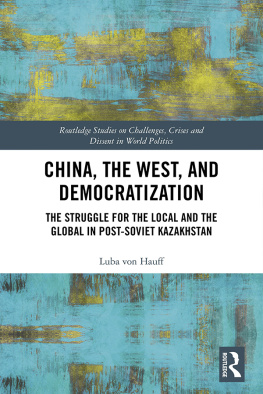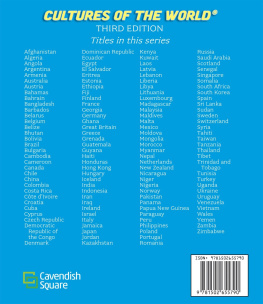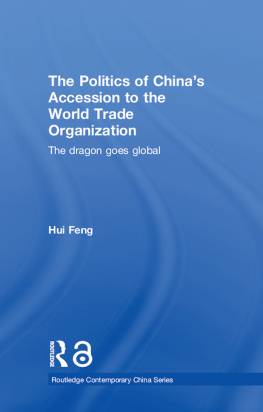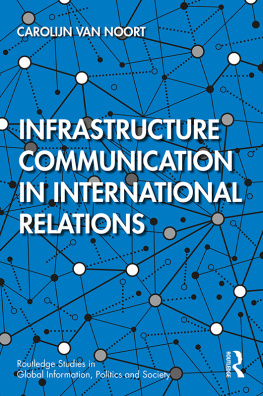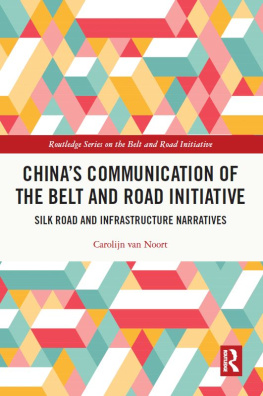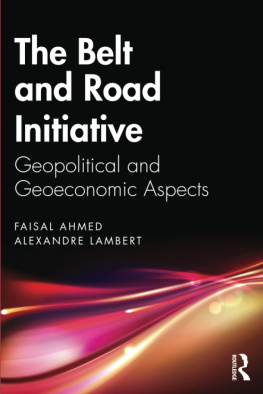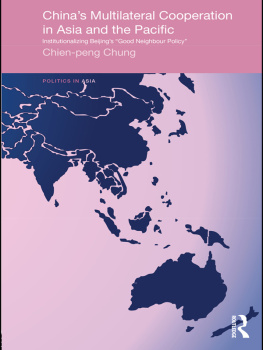China, the West, and Democratization
Drawing upon insights from international socialization theory and social psychology, this book examines Chinas efforts to multipolarize and hence potentially de-liberalize the international system from the local perspective of a non-democratic (yet democratizing) nation and then applies these insights to Beijings current global agency in the context of the Belt and Road Initiative.
Specifically, the book scrutinizes Beijings normative engagement in Kazakhstan, a nation that evolved from an enthusiastic supporter of the Wests normative domination of international affairs into an overt critic after having institutionalized relations with Beijing through the Shanghai Cooperation Organization. Tracing and juxtaposing the respective patterns of Kazakhstans political identity development before the SCO entered the region and after, this book not only yields unexpected conclusions about the quality of post-Soviet democratization outcomes, but also about Beijings local and global influence potentiality for the time to come and its limits.
This book will be of key interest to scholars and students of Chinas normative power, democratization studies, post-Soviet studies, and International Relations.
Luba von Hauff is Senior Research Fellow and Lecturer at the Bundeswehr University Munich, Germany.
Routledge Studies on Challenges, Crises and Dissent in World Politics
Series editors: Karoline Postel-Vinay
Centre for International Studies and Research (CERI), France
Nadine Godehardt
German Institute for International and Security Affairs, Germany.
This new series focuses on challenges, crises and dissent in world politics and the major political issues that have surfaced in recent years. It welcomes a wide range of theoretical and methodological approaches, including critical and postmodern studies, and aims to improve our present understanding of global order through the exploration of major challenges to inter/national and regional governability, the effects of nationalism, extremism, weak leadership and the emergence of new actors in international politics.
Hegemony and Resistance around the Iranian Nuclear Programme
Analysing Chinese, Russian, and Turkish Foreign Policies
Moritz Pieper
Noncitizenism
Recognising Noncitizen Capabilities in a World of Citizens
Tendayi Bloom
Indias Foreign Policy Discourse and its Conceptions of World Order
The Quest for Power and Identity
Thorsten Wojczewski
Policy Transfer and Norm Circulation
Towards an Interdisciplinary and Comparative Approach
Edited by Laure Delcour and Elsa Tulmets
The Politics of Resilience and Transatlantic Order
Enduring Crisis?
Edited by Gordon Friedrichs, Sebastian Harnisch and Cameron G. Thies
China, the West, and Democratization
The Struggle for the Local and the Global in Post-Soviet Kazakhstan
Luba von Hauff
China, the West, and Democratization
The Struggle for the Local and the Global in Post-Soviet Kazakhstan
Luba von Hauff
First published 2020
by Routledge
2 Park Square, Milton Park, Abingdon, Oxon OX14 4RN
and by Routledge
52 Vanderbilt Avenue, New York, NY 10017
Routledge is an imprint of the Taylor & Francis Group, an informa business
2020 Luba von Hauff
The right of Luba von Hauff to be identified as author of this work has been asserted by her in accordance with sections 77 and 78 of the Copyright, Designs and Patents Act 1988.
All rights reserved. No part of this book may be reprinted or reproduced or utilised in any form or by any electronic, mechanical, or other means, now known or hereafter invented, including photocopying and recording, or in any information storage or retrieval system, without permission in writing from the publishers.
Trademark notice: Product or corporate names may be trademarks or registered trademarks, and are used only for identification and explanation without intent to infringe.
British Library Cataloguing in Publication Data
A catalogue record for this book is available from the British Library
Library of Congress Cataloging in Publication Data
A catalog record has been requested for this book
ISBN: 978-0-367-03064-3 (hbk)
ISBN: 978-0-429-02013-1 (ebk)
Typeset in Times New Roman
by Wearset Ltd, Boldon, Tyne and Wear
For
Beni and Lonia
and
Elena Azarch
Contents
This project has its roots at Kings College London, where, more than a decade ago, I stumbled across the (at that time) rather remote post-Soviet region of Central Asia. Domitilla Sagramoso nurtured my interest in this region, which, already then, was well-endowed with geostrategic challenges and opportunities. The careful mentorship of Ruth Deyermond, on the other hand, allowed me to start thinking about Central Asias democratization issues especially in the context of the regions rising neighbour in the East.
After my studies at Kings, I joined the then Eurasia Program of the German Council on Foreign Affairs in Berlin (DGAP). There, it was first and foremost Alexander Rahr, who encouraged me to try out new perspectives and to leave behind ideologically comfortable positions especially when it came to post-Soviet dealings with democracy. That times DGAP was a wonderful place to be Josef Braml had always good advice; Marcel Vietor was really fun to work with; Eberhard Sandschneider helped me to embark on my thesis and to actually formulate my thoughts; Stefan Meister, a great source of knowledge about post-Soviet affairs, became a friend, and Katja Wall a never ending inspiration.
During the years of research, I was lucky to meet some of the most formidable Central Asia experts, who generously shared their knowledge and experiences with me, pruning my ideas and helping me to structure my argument. Of particular help in this regard were Friedemann Mller, Roger Kangas, Bulat Sultanov, Gregory Gleason and, maybe most formative of all, Sally Cummings, who, in about two hours, managed to turn the whole (almost finished) thesis upside down a circumstance that, in the end, was of utmost value.
The process of thinking, researching, writing, and actually finishing the dissertation, then, would not have been possible without the generous support of the Hanns Seidel Foundation (HSS). It would also not have been possible without the stimulating framework offered by the graduate school Contours of a New World Order a joint project between the Bundeswehr University Munich, the University of St. Gallen, and the HSS and the always valuable comments of Reinhard Meier-Walser and James Davis. But most prominently, this project would not have survived without the continued optimism, the intellectual input and vigour, as well as the substantial amount of patience, kindness and support of Carlo Masala, my doctoral supervisor at Bundeswehr University.
I am furthermore indebted to Wolf Krug of the HSS, who during the past years has generously supported my interest in Chinas normative functioning outside Central Asia, encouraging my ideas on how Chinas normative activity works in different, democratic and non-democratic, contexts. Finally, I want to thank Andrew Taylor and Sophie Iddamalgoda at Taylor and Francis for their support and their remarkable patience during the process, as well as Nadine Godehardt for her insightful comments.

